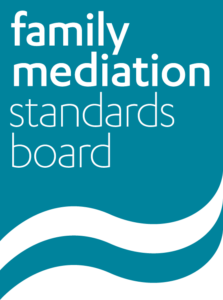Foreword from John Taylor, Chair, FMC
This is the first in what is going to be a series of newsletters, aimed at letting you know what is happening in the world of family mediation, and what is likely to be happening next.
For the FMC, the most important topic is the promotion of family mediation. To be able to deal with that as effectively as we would like, it is essential that we have the funding that we need. We have already secured a substantial reduction in one major area of expense, and we will continue to keep a close eye on the possibility of achieving reductions elsewhere. We will also work hard at maintaining good relationships, and constructive dialogues, with the other bodies we encounter in the course of our work – and we will let you know how those develop.
I hope that you find the newsletters informative and helpful. John Taylor, Chair, FMC
Recent developments
• Code of Practice
The FMC has published an updated Code of Practice, as well as new Guidance for Online Video Mediation. The changes to the Code include those on conflicts of interests, online video mediation, and child inclusive mediation.
There was much discussion among both the working group which initially looked at the Code, and the FMC board, about whether it was appropriate to include a ban on mediators (acting in this capacity) from drafting consent orders for clients. The Code was, and remains, silent on the point after the board of the FMC was not persuaded to include such a prohibition. The issue is, however, one that the board felt needed further discussion with and input from the family mediation community, and so the FMC will run a consultation on this issue later in the year. The FMC would like to extend its thanks to all those who have contributed to the drafting of the new code.
• Legal Aid Agency
The FMC continues to work with the LAA on issues which affect family mediation. We were pleased earlier this year to hear that the LAA laid down regulations which set out that, as long as one party is financially eligible for a legally-aided MIAM, then both parties will be entitled to a legally-aided MIAM, regardless of the order in which they are seen. A link to the regulation can be found on the public funding area of our website This also includes useful information on the 2016 eligibility keycard, amongst other things, and contact details for family mediators who carry out publicly-funded work.
One issue of concern that the FMC has raised with the LAA is that some cases are downgraded, during auditing, from AIM cases to Property and Finance cases. Additionally, other auditing practices, such as the LAA determining that there is not a significant legal dispute, have sometimes caused concern. The LAA has asked the FMC to provide some examples of cases where mediators feel their decisions have been unfairly challenged during audits. The FMC would therefore be grateful if people would email such examples to Helen Anthony at executive@familymediationcouncil.org.uk.
• Voice of the Child
In March 2015, the Voice of the Child Dispute Resolution Advisory Group, set up by the Rt Hon Simon Hughes MP, the then Minister of State for Justice and Civil Liberties, published its final report, and with it made a series of recommendations for the voice of the child to be heard in family mediation. The Family Mediation Council has since put in place an action plan to start to implement the recommendations made in this report, and a working group is currently considering standards and training requirements for practitioners who undertake child-inclusive mediation, in order to make recommendations in these areas to the FMC.
The FMC is grateful to the volunteers on the working group for giving up their time to work on this important issue, and looks forward to receiving the group’s recommendations. We will update family mediators about the progress of this work in due course.
• Administrative concerns
We have had some difficulties with our administrative offices in recent months. Please accept our apologies if this has caused you any inconvenience or problems. Many of these difficulties have already been addressed and we hope to resolve all outstanding issues in the future. However, if you are concerned that any matters are outstanding please email Helen Anthony at executive@familymediationcouncil.org.uk and the issue will be investigated.
• Keep us updated
Please remember to keep us up to date with all of your relevant information for the register, including change of address or additional qualifications, such as PPC. You can do this by emailing FMSB@familymediationcouncil.org.uk.
• FMSB Recruitment
The FMC is now seeking to recruit two independent members and one mediator member to the FMSB. For more information please visit the About Us section of the website; details can be found in Get Involved.
• Notices for Family Mediators
We would like to give family mediators the opportunity to share any relevant information, networking or work opportunities with fellow practitioners and have therefore added a relevant page to the website. We will also include these opportunities in our newsletter where appropriate.
If you would like to share any such information, please email info@familymediationcouncil.org.uk setting out the details, in no more than 150 words, and it will be posted in Notices for Mediators.
A message from the FMSB 
The main work of the FMSB members over the past year has been behind the scenes, establishing processes that will enable the FMSB to put in place a system for the self-regulation of family mediators. This system was agreed by the FMC following the review of the Family Justice System by Lord Norgrove and a consultation review carried out by Professor McEldowney.
The FMSB’s work has included:
• registering 1,209 mediators, 626 of whom have FMC accredited status. The temporary register, held by our administrative office, is soon to be replaced by a register which is securely hosted on the web. It will provide the public, courts and others with an easy way to check mediators’ registration and accreditation status;
• publishing guidance on the signing of Court Forms and MIAMs, as well as ensuring individual queries about the new self-regulatory framework have been answered. We have also recently been working with the MoJ to ensure that Court forms & associated guidance will be amended to reflect the fact that mediators must have FMC authorised status to sign these. The amended Court forms will be published on 3 October 2016;
• putting in place a system for approving family mediation foundation courses on behalf of the FMC, approving five courses so far, with two more applications having been recently received and which are undergoing review;
• conducting a review of the Member Organisations’ complaints and disciplinary processes, which has been submitted to the FMC for comment;
• working to clear a backlog of applications for accreditation, created after more than a year’s worth of portfolios were received at the end of 2015; and
• ensuring that we keep abreast of the work of the FMC’s Child Inclusive Mediation working group, so that we are in the best position to implement any standards that the FMC introduces in this field.
We are now seeking to build on this solid foundation as we continue to strengthen the regulatory system through a number of measures, including the registration and training of PPCs, the standards review, and the incorporation of any changes introduced as a consequence of the Voice of the Child report into the Family Mediation Standards Framework. We look forward to updating you on the progress that we make in doing so.
Glynne Davies, Chair, FMSB



